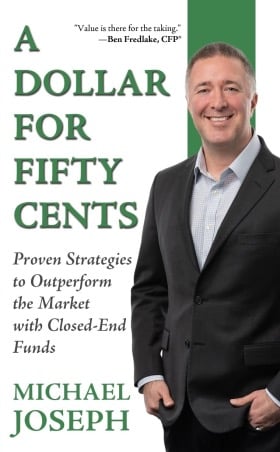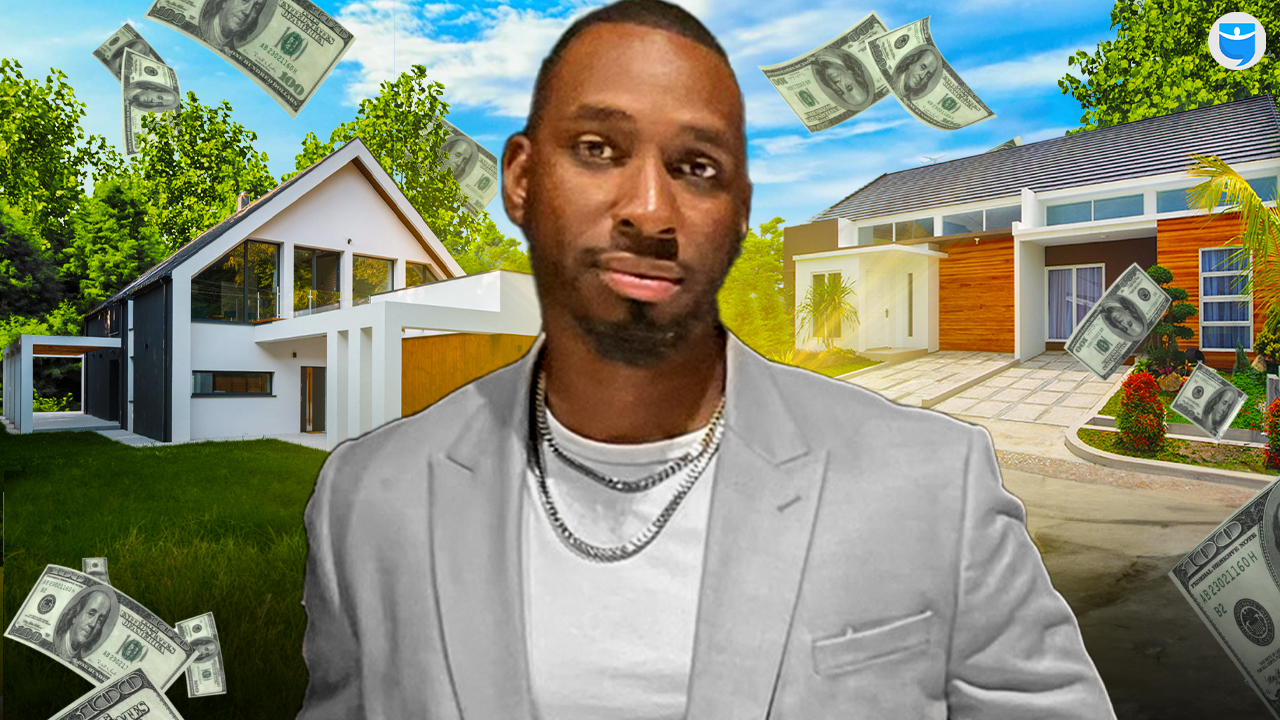What if you could make six figures on your first real estate deal? “Yeah, right! Where am I going to find a property like that?” you say. What if we told you that instead of finding a home-run rental property, you could build a better one? Now, not only do you have some instant equity once the house is built, but you also deal with none of the expensive capital expenditures, regular repairs, and common headaches that come with owning an older home. And you can do this even in the most expensive of markets.
When Lacey Russell was looking for an investor-friendly agent, she turned to BiggerPockets Agent Finder, where she found her rockstar real estate agent, Sam Haack. Together, they realized that building a new construction rental worked FAR better than buying one, so Sam scoped the market for investor-friendly builders, and now, they’re off to the races. They’ll go through the full numbers of this real estate deal, from land costs to loans, equity forecasts, cash flow, and more!
Want to find an agent just like Sam? Hop on the BiggerPockets Agent Finder, answer a few questions, and get matched with investor-friendly agents in your area!
Henry:
What’s going on everybody? Welcome to the BiggerPockets Real Estate Show, episode 898. I am Henry Washington and I’ll be your host today as we dive into a very special episode focused around just one deal. Today, we’re going to hear from Lacey Russell. Lacey is new to investing, but she was able to make her first deal, a really smart deal, even in a crazy expensive market with low inventory. And when I say expensive, I mean expensive. We’ll also hear from one of the heroes of this deal, Lacey’s real estate agent, Sam. Sam is one of our elite agents here at BiggerPockets. So if you are looking for an investor-friendly real estate agent who understands investors and the goals investors have, then go to biggerpockets.com/agentfinder today. Lacey, can you give us some context on your investment priorities and what are you hoping to achieve with this deal?
Lacey:
Yeah, this was after buying a myriad amount of books that you guys have, Wealth without Cash for investment books, Rich Dad Poor Dad, I’d gone through the first phase of just trying to educate myself and then I went through the website to try and find an agent. And what I was hoping to find when I was looking for an agent was somebody that could also be in a way, a mentor or somebody that would have advice in terms of real estate investments because I was incredibly green myself.
Henry:
Okay.
Lacey:
And fortunately when I met Sam, he was all of those things. He was a sounding board, he was somebody who had great ideas and he knew our market and he knew how much potential there was in the current market. Even though inventories were low and everything that we were looking at initially was like, well, with interest rates going up, maybe buying something that’s already built doesn’t make sense. Maybe we go and build.
Henry:
I want to make sure I understand your order operations and your logic as you were thinking through this because there’s a lot of people who are in your shoes or in a similar position where they live in a market, they think they see some opportunity. That struck my attention. You said, “I saw the opportunity and the need for investment,” and so that’s what sparked you to want to look into it. So from that perspective, were you seeing the need for housing? What is it that you were seeing?
Lacey:
Yeah, no, I appreciate that. That’s a great question. So we live near a very high end resort town and a lot of the folks who work in this resort town can’t afford to live there. And so a lot of them commute from the valley in which where we live and the inventory is just incredibly low. Even if it was affordable, say it was 10 years ago, right now we can get 2, 3, 4, 5 properties at two and a half to 3%. The inventory, I believe, would still be low.
Henry:
Okay, so your step one was you identified that there was some opportunity in your market. “This is my opportunity. I’m going to jump in here. I’m going to try to invest and solve this problem where we need housing for the people who are working in this area.” Now I just need some help. And you jumped on the BiggerPockets agent finder and found Sam. So Sam, talk to us a little bit about what that approach was like from Lacey and then what you see within that real estate market
Sam:
To add some context to both markets and why we have such low inventory, the average sales price in Jackson, Wyoming is 5 million bucks, 5.2 million. Down south of Jackson-
Henry:
Excuse me, the average home sale price is 5 million?
Sam:
5 million as of 2023.
Henry:
Wow.
Sam:
So then you go to Star Valley, which is south of Jackson and you’re at $685,000 average sales price in 2023. And both days on markets have increased from just a few weeks during COVID because we had all this demand coming to our area when international travel was restricted and people wanted to vacation still domestically. So now we’re at 120 days or so, three to four months for both markets. It’s slowed down a little bit, but prices haven’t moved much. So you do the math on some of these existing deals and you just realize that rents are not going to cover the financing unless you’re put in 50 or more percent down. So we ran all these numbers through the BiggerPockets investment property calculators and otherwise, and just napkin math is pretty blatantly obvious that you’re not going to be able to make these deals cashflow.
And so that’s when we just said, “Okay, instead of stopping our search there, let’s just get a little more creative. What can we do?” And luckily there’s a good amount of inventory on land, especially some of these smaller lots. And as long as we could put a couple of different pieces together and use some creativity, including bringing in a builder that was actually relocating to the area, it can make a lot of sense because the spread between building prices and retail prices, there’s still a good amount of money or a good amount of profit margin in there for a builder to come in and be successful.
Henry:
Yeah, I mean I think you’re singing the song of a lot of people in expensive markets. They know that there’s a need, but are trying to figure out how do I supply housing and buy it at a price point where I can afford to make money while solving that problem? And so I understand the logic that got you to look at the land. Is that something that happened pretty quickly or did you guys start looking at existing homes and touring properties before you made that decision or transition?
Lacey:
Yeah. And so maybe I’ll back up. So when Sam and I met for the first time for lunch, and we talked about strategy if you will, I moved up at the height of COVID right before prices skyrocketed. So I wanted to leverage some of the equity that I have in the current home that we’ve flipped to a point where it’s almost done. And so that will eventually become a buy and hold and we’ll rent that out. If we don’t take the equity, it would cash flow beautifully. I mean to the two, maybe 500 to a thousand dollars per month. We’ll probably take the equity out and roll it into the new property. But initially we did think about looking at that equity and buying existing property within maybe 20 to 30 mile radius.
And everything that we looked at, while it was great, and Sam is correct in saying that none of it would’ve cash flowed, I guess I just got to the point where I thought if it’s not going to cash flow, it should be an appreciation play. And there’s another home. It’s where we bought the lot is on a golf course and there’s another home that I heard another realtor say that it’s on the golf course and it’s rented out 365 days a year. And I thought, well, if anything were to ever happen with my W2 job where I had to relocate, I know that if we leave this residence it would be fine in terms of a midterm or short-term rental.
Henry:
Awesome. Now that we have a sense of the market where Lacey and Sam are looking, we’re about to get into the details on this deal and later how they managed to find a good contractor under budget. Stick around. Welcome back. I’m here with new investor Lacey Russell and her agent, Sam Hack, and they are walking us through a deal that they just did. Okay. So to recap, you decided that the numbers weren’t working, you weren’t finding anything or seeing anything that was going to meet your financial needs, but you didn’t just quit. You didn’t just say, “Oh, well I can’t invest here. You decided to start looking at land.” Sam, how did you help in that decision process or was that Lacey’s idea? How did you guys come to that decision? Because it’s a pretty big shift from an investor’s perspective. There’s a lot that goes into building new construction that is what people would consider risky. It could be expensive on the front side, and so a lot of new investors tend to want to stay away from this. So how did you guys come together in that decision process?
Sam:
Yeah, I think it’s starting from you got to get to know each other because there’s a lot of intimate financial details you need to go through to get a full picture of what someone is trying to achieve in their investment career. And unless you know all the different tools you have in your toolbox and dials and levers you can pull to make something creative happen and improve someone’s portfolio, it’s tough. So you basically just we got to know each other first and then we said, “All right, you’ve got these existing properties, you’ve got other business ideas.” We’ve talked a lot about side hustles and things. So a full financial picture helps to start and you just have to build rapport and do that and that’s great. And then of course, yeah, there’s a lot of brain damage that goes into building a house and there’s a longer timeline. And there’s carrying-
Henry:
That’s a phenomenal way to put it.
Lacey:
Yeah.
Sam:
It’s not easy, but Lacey’s energetic and both of them are like, “Hey, we’re willing to take this project on and make this happen for a more optimal result.” And so there are trade-offs in any kind of strategy you decide to go with. But one thing I use is for any deal, even though of course I’m in sales and I want to sell existing inventory with high prices and stuff, it still has to make sense for you. And I say you got to keep the rubber down and the paint up. It’s basically that you don’t want to be upside down on any deal, no matter how much you love the area and how much you think it’s going to appreciate, you got to make a fundamentally sound decision based on income or your ability to float it.
Henry:
I love that.
Lacey:
And the only other color I’d add to that would be that the inventory in the market aging, and with that comes a whole slew of problems potentially. And I just also had it in my mind, well if I’m going to invest the money, I don’t know what might pop up down the road so I could potentially spend the same amount of money on repairs and remodels. I know this from experience based on what I’ve done in current remodel, that if I just take a little bit of that money that I know potentially might be needed for some of those expenses and just invest it upfront and know that it’ll be taken care of by somebody I trust, then it made sense to me to do it like that.
Henry:
And Sam, had you had any previous experience with helping investors on new construction projects?
Sam:
Yeah, so the trickiest part I think is matchmaking. I say that your network is your net worth and you better have a really trusted builder network. So Dylan was one of the first people that I’ve really put through a couple tests, if you will, like smaller renovation projects and additions and just making sure that he had good communication and was reliable and that he would actually be up for this project and was a good guy. And I think that’s important. So I had sold a lot of other pieces of land but had not found comfort with a builder because a lot of them are just in it for the money and they’re like, “We’re just going to go build spec homes or retail stuff and make the most amount of money.” But luckily, Dylan was a good fit because he is trying to build his business in the valley and is new. So he’s willing to not go all the way to retail prices, make sure it’s a win-win for both his client and him.
Henry:
What I enjoy about this story and this deal so far is you are finding a way to invest where you live. A lot of people think it’s too expensive and I just can’t do it. And instead of being discouraged when you couldn’t make the numbers work on something that was existing, you’ve pivoted to a strategy where you feel like you can make the numbers work and that does bring in risk. But I think bringing in partners like Sam and the builders that you brought in who have the experience that you can lean on allows you to be able to ease into new ventures like this.
And I commend you for how you’ve gone about this process because I tell people all the time, you can absolutely invest in any market. There is a way to invest in almost any market, but you’ve got to be an expert in your market or work with an expert in your market and partner with people who have the experience that you lack. And so congratulations. All right, so you’ve now decided you’re going to do this new construction project. Tell us about this project. What are the numbers?
Sam:
The lot was originally listed for $89,900. It was reduced in price to 80,900, and then we were able to negotiate $5,900 off for a closing price of 75,000.
Henry:
Okay. Bought a piece of land for 75,000. How big of a piece of land is this?
Lacey:
0.6 acres just shy of that. The plan is to develop roughly 2,500 to 2,800 square foot home, four bedroom, three bath approximately, with a goal of spending somewhere between 750 to $850,000. Based on what we’re seeing in the market already, I noticed a few properties just around the corner that were of a similar size and they were remodeled, a little gussied up, if you will, but not completely gutted. I mean no new kitchens, no new bathrooms, just some paint and trim. And those I think already appreciated a hundred to 200,000.
Henry:
Okay. So is the goal to build this new construction single family and sell it or build it and rent it?
Lacey:
The goal will be long-term to do short-term and midterm rental as we continue to roll over and invest maybe in one to two to three more properties.
Henry:
Okay. Yeah, I was wondering because you said 25 to 2,800 square feet, and most people when they’re going to build a single family as a rental, typically go for something, three bed, two bath, 1,500 square footage. So was the logic in doing a bigger home there because you’re going to do a short-term rental and wanted to be able to provide more bedrooms and sleep more people?
Lacey:
Yeah, exactly that. If it came down to a long-term rental, the family size I would say in our area tends to be on the larger side. I don’t know if you disagree with that, Sam. So it’s the nature of the folks that live where we live that I think it would be fair to say it could run out a larger size family. No problem. If anything, I think we’ve got an inventory shortage on larger homes that are available for rent.
Henry:
So you’re all in, it looks like, let’s say if you take the worst case scenario you build for 850, you paid 75 grand for the lot, you’re all in at 925,000. What’s the expectation of the value of that property once the construction is complete?
Sam:
Yeah, yeah. We’ve seen similar square footage give or take on the lot size a half acre, bigger or so, but at 1.1 to 1.2 million.
Henry:
1.1 to 1.2 million. And that’s just once it’s complete, that’s not having to wait for any appreciation, right?
Lacey:
And that’s the magical part about where we live is it’s close enough to those high-end areas that the folks that can afford it would happily do so and happily move there to be only 30 to 45 minutes away from a really nice ski resort.
Henry:
Yeah, I mean $175,000 worth of equity right out of the gate is pretty darn good. Pretty darn good. Well, I guess let me lead into it this way. How did you finance this project?
Lacey:
So Sam also introduced me to a banker that he knows. I think meeting Sam has helped me really, really build my network in so many ways with regards to a builder, an amazing real estate agent and advisor and as well as a banker. So yeah, that we’re just going at a traditional route through that contact.
Henry:
Is it a construction loan, I would assume? A commercial construction loan?
Lacey:
Yeah, that will convert. So the land piece will convert to a construction and then we’ll convert to a mortgage once it’s complete.
Henry:
All right. So yeah, so for those of you who are unfamiliar, I would assume this is a local regional bank to the area?
Lacey:
The base set of Idaho, but US bank. So I think it’s pretty well known.
Henry:
Okay. That’s a pretty big bank. So for those who don’t know, you can go to a bank when you’re doing new construction, you can get a commercial loan and that commercial loan will cover the construction and then typically it will convert over to a principal and interest loan once the construction period is complete.
Sam:
And Henry, if I can add too, just that this lender keeps their paper, so they’re offering rates lower, one point lower than the average and that’s a beautiful thing as well as working directly with a bank, they can do lot loan to construction loan to traditional 30 year fixed all in one house instead of transitioning lenders over the course of that process.
Henry:
Absolutely. So what Sam is saying is these lenders that he’s speaking of typically are called portfolio lenders, not because they do portfolio loans, but because they keep the loans in their in-house portfolio so they don’t go sell these mortgages. That allows them to have some freedom sometimes with the rates and the terms because all of these loans stay within the bank’s portfolio. All right, we’re going to take one more quick break, but stay with us. Sam and Lacey will give advice for anyone else going after deals in this market and Sam walks us through exactly how he found his unicorn contractor right after the break.
Welcome back, everybody. I’m here with investor Lacey Russell and elite agent Sam Hack. Right before the break, they walked us through the numbers on their most recent deal. So let’s jump back in. So you’ve got the loan and it’ll convert over to a principal and interest. What’s your expectations on cashflow for this property? Will it cashflow or is this more of an appreciation play?
Lacey:
I think this is all appreciation. I’ve been fortunate enough in my career, in my W2 job that I can cover any necessary bills and expenses and I’ve planned for that contingency funds, but I do think it’s an appreciation play for quite a while.
Sam:
Throughout the whole process, my expectation was actually that Lacey is going to fall in love with the home that she designs and builds and then she’s going to move into it and then she has this great existing house that she could rent out and it will cash flow really nicely. So I think she has some options, but if you go linear with this particular deal, I don’t think the numbers look super good on cashflow, but she always has the opportunity to move into it and then have her other property cash flow great.
Henry:
Yeah, that’s fantastic. And this is a great conversation to have because a lot of people will choose not to buy a property specifically just because it doesn’t cashflow, but I think what you’re highlighting here is there are other benefits to owning property and cashflow is really just one of the ways that a deal pays you because you’re walking into a $175,000 worth of equity. I’m sure Sam has some idea of what that equity can grow to year over year in that area. So that’s just your equity year one, but your equity year two, three and four may continue to go up, especially as interest rates go down. And then one of the things that we haven’t talked about at all is the tax benefit that you’ll get for owning this home, which will actually help you keep more of the money that you make it your W2 in your pocket. So just because a deal doesn’t cashflow doesn’t mean you shouldn’t buy it. I just think we have to be careful and always walk into equity, which it seems like you’re doing.
Lacey:
Yeah, no, I appreciate that. That’s a conversation I was having this morning with our SPP who also does some real estate investing in on her properties. It’s not about cashflow either, but it is about that depreciation place. So it’s just one avenue I think I’ve learned that I need to pivot. I have investments on the personal side. I have 401(k)s, I have all the traditional investments, and this is just another piece in my life that hopefully sets my family up for a nice little retirement.
Henry:
Yeah, that’s a great perspective. Everybody has a different reason for investing in real estate, or I should say a different goal. If your goal is to purely generate cashflow so you can quit your job, then this probably isn’t the type of deal that you need to do. But if your goal is to build long-term wealth and have equity that you can either leverage to do something else or build your net worth, then this is a really good investment from that perspective because you’re getting something brand new, you’re deferring the maintenance for years. And so I think that I don’t want people to put investing all in one bucket like, “I have to get cash flow,” or “I have to get this.” You really have to have your goals and then see what strategy meets your goals and helps you get there. And it looks like this is exactly the kind of deal that supports your financial situation.
Lacey:
The only thing I’d love to say there for anybody who is younger, especially in a younger female, I know it sounds like they’re big numbers, but I started small. I originally had a condo in Dallas that sat on for a few years and built equity there. And I got lucky when we first moved to the part of Wyoming that we’re in, and I fortunately built equity there. You just hear a lot about build your portfolio, 60, 70, a hundred plus investments and it can feel overwhelming. And I would just say to anybody, I would encourage them to just start and start small and start what makes sense to you and what you’re comfortable with, right? Because everybody has a different risk tolerance. I tend to be a little bit conservative. I mean, I’m financed by trade, so I do a lot of risk modeling and to me, I’m taking a slower, I wouldn’t say simpler strategy, but more of a cautioned approach, if you will.
Henry:
Yeah, I definitely wouldn’t call new construction simpler, but it can feel like that if you’ve got the right team. And it sounds like you’ve done really well at bringing in the right people. So to piggyback on bringing in the right people, Sam, you hinted about it earlier about finding a builder or contractor that can meet the needs of your client base and build at a price point that really creates this win-win. Talk to me a little bit more about that dynamic, how you found that contractor and how you guys all created that win-win situation.
Sam:
So I met Dylan on Instagram of all places, and to most boomers or older people, they go, “No way this is a reliable source for a builder.” But Lacey and I met on BiggerPockets and that’s how the world works these days. So I know a lot of local builders and if you’ve been around the market for a while, you’ve seen this giant run up we’ve had in this area. But in the United States, in a larger sense, prices basically doubled in our area. And material prices did go up a lot too as supply chains went up, but they settled down plywood, lumber, all these things. They did come down a bit. And so this big spread exists and the guys that have been building for a long time just said, “Well, we’ll build you something, but we’ll build at retail prices and make $500,000 in profit on each deal on a million-dollar house or a two million dollar house.”
And so looking for someone like me, like Lacey, someone that was eager, had a lot of energy and was looking to take on a new project to develop their business and make a name for themselves in this market was important because he recognizes that he could make a bunch of money doing spec homes, but it’s also risky for him to float all that cash. So by having a client lined up, he’s got guaranteed cash draws from this construction loan and he wants to make a business in our area and also develop friends and relationships. And that’s the mantra behind my relationship with Lacey too. It’s like, I just want to work with friends and Dylan does too. So we went and ate Cajun food together and had some beers and know it was a good time. And just working with someone that you really trust and you know isn’t in it just for the money is really refreshing.
Lacey:
So to touch on the Cajun thing, you’re from Arkansas, my wife is from New Orleans. And after we closed some deals, I took these guys to a Cajun food truck and had crawfish in Wyoming. It was quite the truth to watch two grown men try to eat crawfish for the first time, it was amazing.
Henry:
Hey, I went and had seafood boil last night for dinner right here in the middle of Arkansas. You can do anything anywhere now.
Lacey:
You can do anything anywhere for a different price, but yes.
Henry:
Yes, you will pay more for it when you’re landlocked, but it’s delicious.
Lacey:
It’s wonderful.
Henry:
Okay, so talk to us about this project. Where is it currently? When is it scheduled to break ground? Where are you at in the process of it all?
Lacey:
So we closed last September. Another tricky thing about where we live is it snows six months of the year, so we can’t break ground until the spring.
Henry:
You literally can’t break it because it’s frozen.
Lacey:
Yeah, it’s rock and it’s frozen and you have to hustle like hell to break ground in the summer because it could be a short summer and you want to be able to get the frame up so you can work inside through the winter. But the goal would be to break ground this summer, God willing, and then hopefully be completed by the following summer. Knock on wood.
Henry:
I love that. I think you guys are a phenomenal example of what new investors can accomplish when they put the right people around themselves and they are willing to not just give up when the first thing that they think of doesn’t work. On that note, I want to ask you each one question that hopefully can help some of the people listening. So Lacey, you’ve gone through this process, you’re now about to break ground hopefully soon here, what would you say is the one thing that you did in this process that really helped make it all easier for you?
Lacey:
The one thing that I did well, I mean, without the BiggerPockets website, that was the greatest tool that could have ever been available to me. It was the pathway to meeting Sam. It was the pathway to meeting Dylan, an amazing banker. So I’m forever grateful and I think network is everything and people are everything to me. And as long as you are honest, you take care of the people that you care about and you’re transparent, then I just feel like, sorry, I’m all about good energy and people just treating each other right. So I just think that when you put good out in the universe and you want others to succeed, like I want the world for Sam and I want the world for Dylan, then I think you naturally succeed on your own. And my success will look completely different than anyone else’s success. To me, success is a couple of properties and a comfortable retirement for my wife and my family. But yeah.
Henry:
That’s absolutely true. And you’re speaking my language. I often say I don’t always make the best business decision, but I darn sure make the best people decision. And if that people decision costs me money, I’m okay with that. But obviously yes, I think having an investor-friendly real estate agent who is in your corner can truly be a game changer for any investor, but especially for new investors. And you found that in Sam. So Sam, talk to us a little bit about how should new investors approach investor-friendly real estate agents like yourself? How can they add value to investor-friendly real estate agents? And how do they best work with you?
Sam:
Let’s see. I think the best way, at least initially, to work with an investor-friendly agent is just be really transparent about what your goals are and what your finances look like. Because there’s nothing more frustrating than starting to look at properties and starting to develop this great strategy that sounds amazing on paper. And then we peel back the layers of the financial onion and it’s like, “Oh man, we can’t afford this,” or “We can’t really go down this road.” Because you don’t know what goes into a build process or you don’t know what it would actually take to finance this project or whatever.
So I think transparency is really important, and Lacey was really transparent with me and I learned a lot from her as well. We have similar interests. I got a good recommendation for where to work on my classic car in the valley, and I think there’s a lot of things that I can learn from my clients as well. So develop that rapport and that relationship first and foremost. Hold off on looking at properties, trying to make the sale as an agent and just get to know each other first.
Henry:
I love that. I love that.
Lacey:
Yeah. Because I mean, I can’t say enough how much I speak the world of Sam, and I know this is one small step to a really long and prosperous future together, but word of mouth is everything, right? And I speak his name anywhere I can in the valley.
Sam:
Thanks, Lacey.
Henry:
Wonderful. I love this. This is amazing. I love hearing your story. I love hearing about your success. I love how you take care of people and I love how you didn’t quit when things got tough. These are the things that make successful real estate investors successful. There’s no secret sauce with this business. It’s been around for decades. People have been making money in real estate for a long time and they’ll be making money a long time after we are gone in this industry. The only thing that sets sets apart the successful people are you can’t give up. If you don’t quit, it’s going to pay off eventually. And you guys are just doing fantastic. So thank you so much for coming on the show and sharing your story and sharing the wins and the tribulations along the way, and we wish you nothing but the best of success moving forward.
Sam:
Thanks, Henry, appreciate it.
Lacey:
Thanks, Henry. It was a pleasure to be here.
Henry:
All right, thank you so much for listening everybody. Once again, if you want to learn more information about Sam, Lacey, or myself, you can find that information in the show notes. And if you want to find amazing investor friendly real estate agents in your market, you can head over to biggerpockets.com/agentfinder. Thank you so much for tuning in. We’ll see you on the next episode of the BiggerPockets podcast.
Help us reach new listeners on iTunes by leaving us a rating and review! It takes just 30 seconds and instructions can be found here. Thanks! We really appreciate it!
Interested in learning more about today’s sponsors or becoming a BiggerPockets partner yourself? Email [email protected].
Note By BiggerPockets: These are opinions written by the author and do not necessarily represent the opinions of BiggerPockets.















